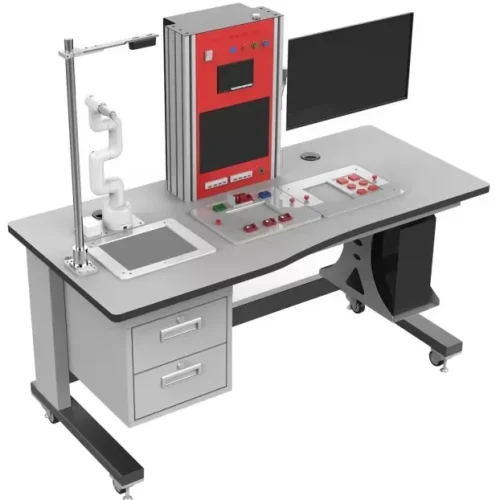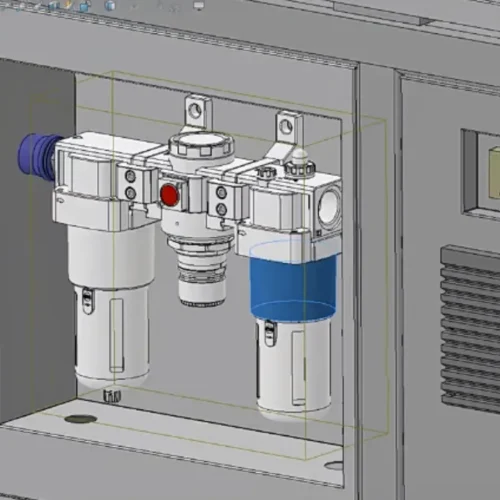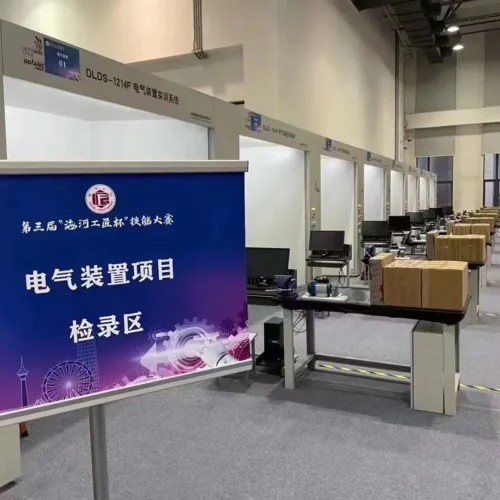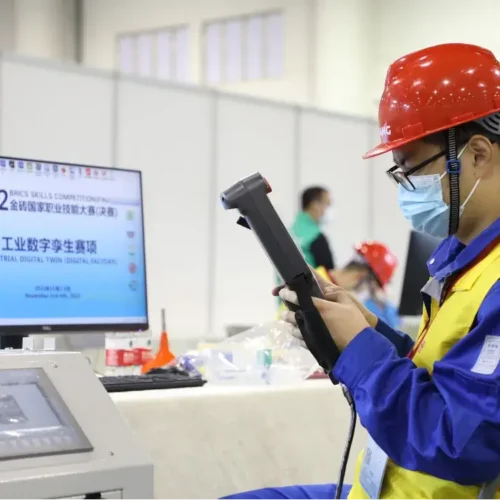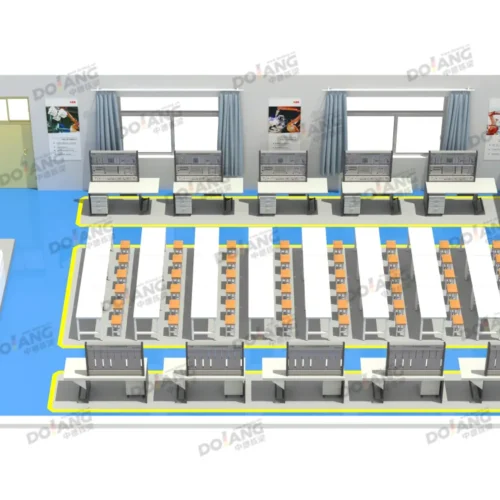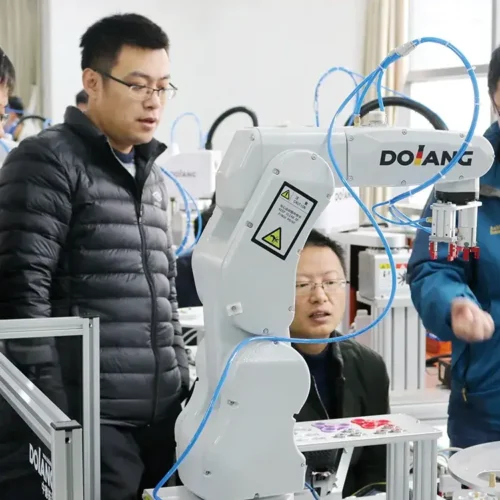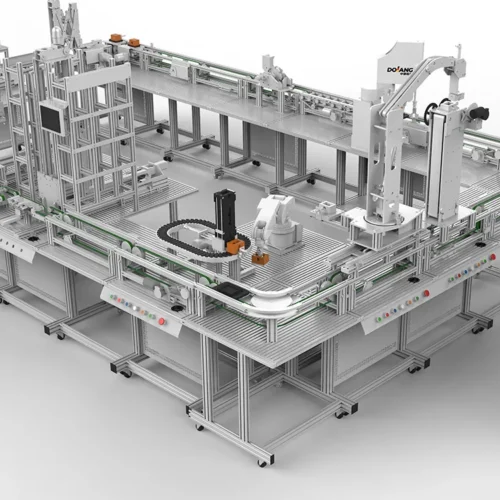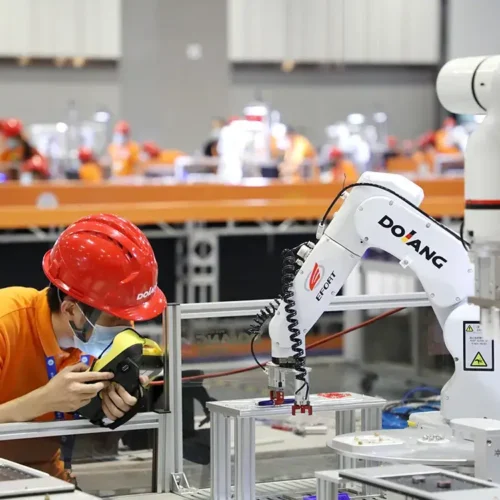The entry of Industry 4.0 in the manufacturing sector has brought about many crucial benefits. Besides automation, an interconnected and digitized manufacturing process is possible now.
Robotics is a field that involves the use of automation to perform manual tasks. Industry 4.0 focuses on boosting productivity and efficiency. It aims in better communication of devices, products, and machines. Robotics in Industry 4.0 enables the successful delivery of cost-effective, sustainable, and efficient processes.
The use of robotic training equipment has gained importance now. It has become an integral part of the manufacturing sector. With the proper training, industries can exploit robotics. This helps to improve product quality. It provides customers with highly efficient and satisfactory products.
The Advent Of Industry 4.0 And Its Impact
With super-efficiency as its primary goal, the fourth industrial revolution (Industry 4.0) concentrates on delivering wide-range uses in the manufacturing sector. Industry 4.0 aided by robotics results in generating the finest quality products. At the same time, the two help maintain the current schemes that the industries use. In short, smart factories are set up under Industry 4.0 which includes advanced tech like
- Robotics
- Solid safety
- Massive data
- Intelligent sensors
- The Internet of Things and more.
Advanced technologies help to refine the manufacturing process. This results in enhanced safety at the workplace, reliable production, and cost savings.
Using A Robotic Training System
Robotic systems promise many benefits that have a positive impact on the bottom line. Hence, they are a vital part of industrial processes. A robotic training system consists of a scaled-down system. It helps train employees or students of a vocational school.
The systems help enhance the practical skills of the members. For vocational schools that deal with teaching industrial robotics processes, application, maintenance, and more, the robotic training system is vital.
Robotic training equipment includes
- Setting up parameters, operation speed, and more
- Fixing the speed of the operation
- Installation of the robot and more.
The systems are designed in such a way that they are applicable in a diverse range of operations in real time. They are functional and apt for teaching different majors. Dolang China robot training equipment is an apt example. It caters to clients from over 70 countries and regions. The products help train students in using the robotic Industry 4.0 compliant systems.
Robotic Applications
Industries that have repetitive and monotonous tasks routinely will have unhappy employees. They experience fatigue, physical discomfort, and more. With robotics, they can carry out tasks effortlessly and reduce stress.
The use of Industry 4.0 ensures proper connectivity and network aspects. This enhances the connectivity between machines and between humans and machines. An efficient data transfer occurs as a result. For enabling this, industries use advanced technologies like the following.
- Unified Internet of Things platform
- Interconnectivity of machines via 5G
- Edge-to-cloud networking and more.
By using robotics technology in industry 4.0 tech, production processes are more customized and adaptable. Processing data safely is possible with minimal cyberattack risk. Robotics and Industry 4.0 find many applications in diverse industries. Manufacturing, agriculture, household appliances, and healthcare are some of them.
Benefits Of Using Robotic Training System Devices
A robotic trainer kit is a scaled-down version of the original equipment. It enables the user to train in using the system effectively. The various benefits an organization can get include
1. Effortless tasks
Employees perform complex jobs without any effort due to the use of automation. Transportation of goods, paintwork, welding, and more require reliable and meticulous attention. With robotics in Industry 4.0 systems, employees do their tasks seamlessly. This saves time and money for industries. It also ensures the safety and motivation of employees.
2. High productivity
Increased production is possible due to automated machines. Robotic trainer kits help users to control the automation process using artificial intelligence and smart robotics. This ensures optimization and self-sufficiency.
3. Efficiency
Efficient handling of materials is possible with robotics and Industry 4.0 involvement. Autonomous robots like robotic arms ensure smooth transportation. Industry 4.0 technology ensures there is versatile connectivity between the processes. Robot arm training equipment helps users to train by working in tandem with Industry 4.0 technology. The robot arm training equipment also helps train users in handling robotic arms. These help to assemble parts in huge manufacturing units.
4. Robust control
Robotics and technology like IoT ensure surveillance and control of all operations are possible. IoT helps in surveillance, recording, pervasive sensing, and more. The use of such tech will help in a major improvement in growth and performance. Further in industries like the automotive sector, robotics is widely used. The attraction is due to its precise, scalable, and reliable features.
Challenges Faced In Using A Robotic Training System
While the benefits of using a robotic training system are large, there are some risks in using them. Introducing automation in itself results in issues like high costs. Further, there is a need for expertise and worries about job displacement.
While the challenges are worrisome, the benefits outweigh the risks. However, adopting robotics and Industry 4.0 tech requires in-depth training. Some of the major challenges that industries face in adopting and implementing robotics training include
- Cost: The cost of a robotic trainer kit and implementation of the training may be inhibitive. But some China robot training equipmentmodels have affordable price ranges.
- Scalability: As mentioned before, the training kits are scaled-down versions. This can make it difficult to use the robotic systems in real time.
- Accessibility: Access to the appropriate training equipment can be a deterrent to using the kits and benefiting from them.
Effective Implementation Of Robotic Training Systems
The use of robotics in industry 4.0 tech helps extend the benefits that businesses can get. They can use intelligent manufacturing processes resulting in improved accuracy, versatility, and efficiency. By using training kits and systems like those from Dolang, industries can train employees to operate the systems efficiently and successfully.
Increased performance and high productivity are the benefits. There are fewer quality errors and high cost-savings too. Higher output with lower prices attracts a larger number of buyers. Further, ergonomics and safety improvement help minimize risks and fatigue issues among employees.


